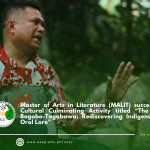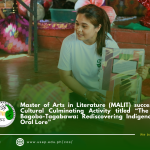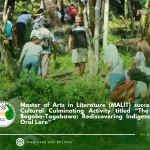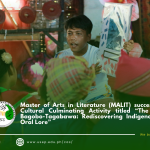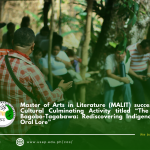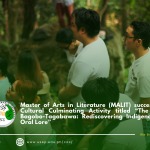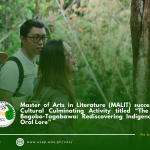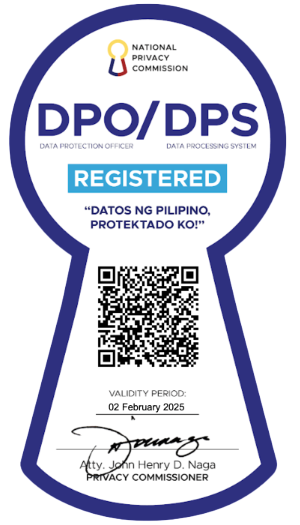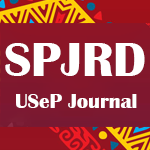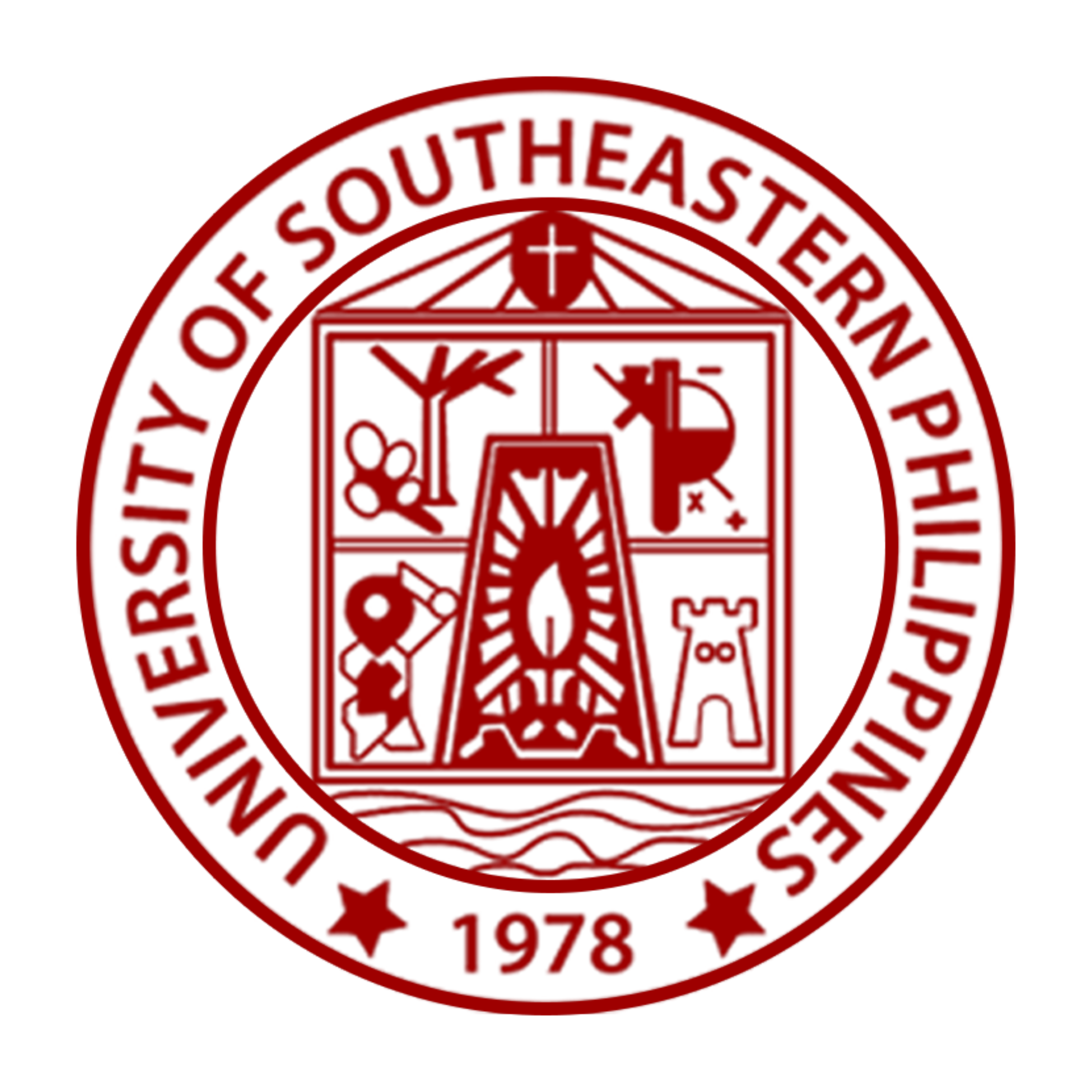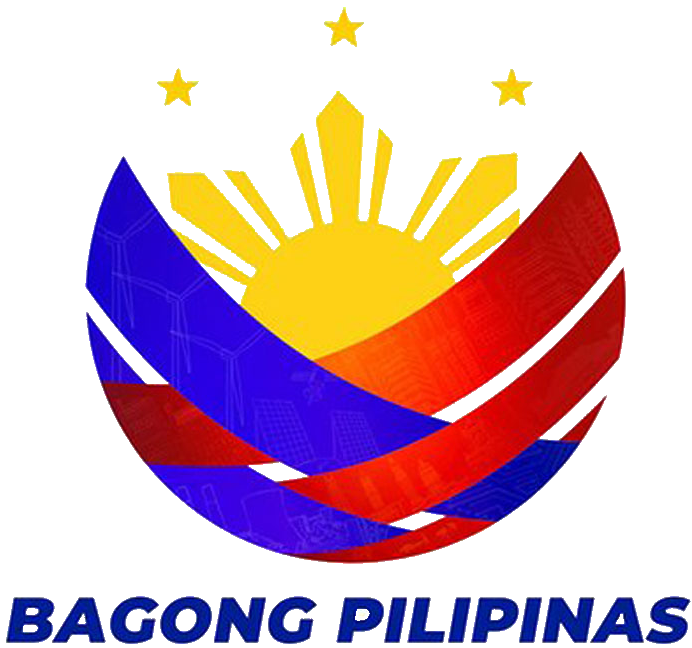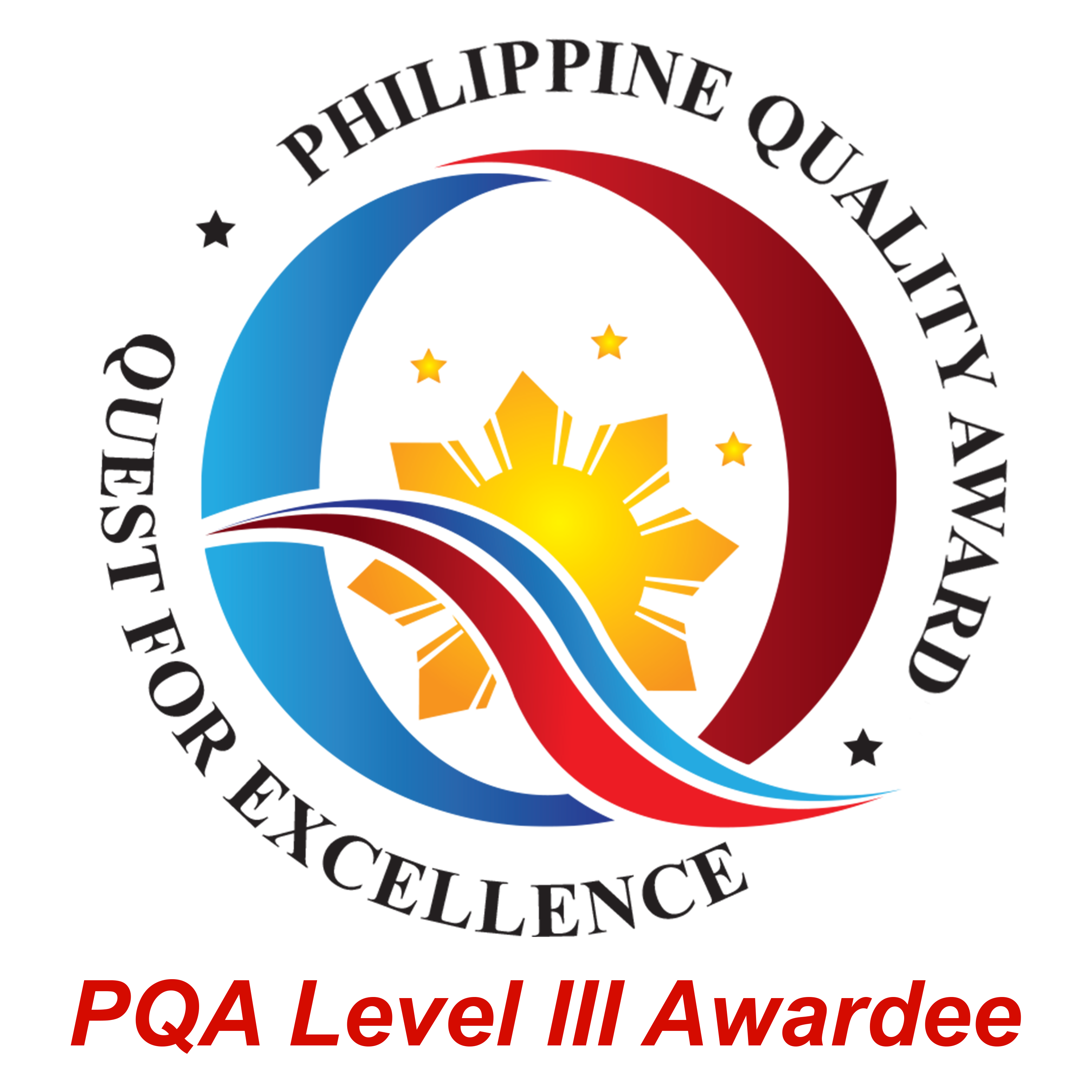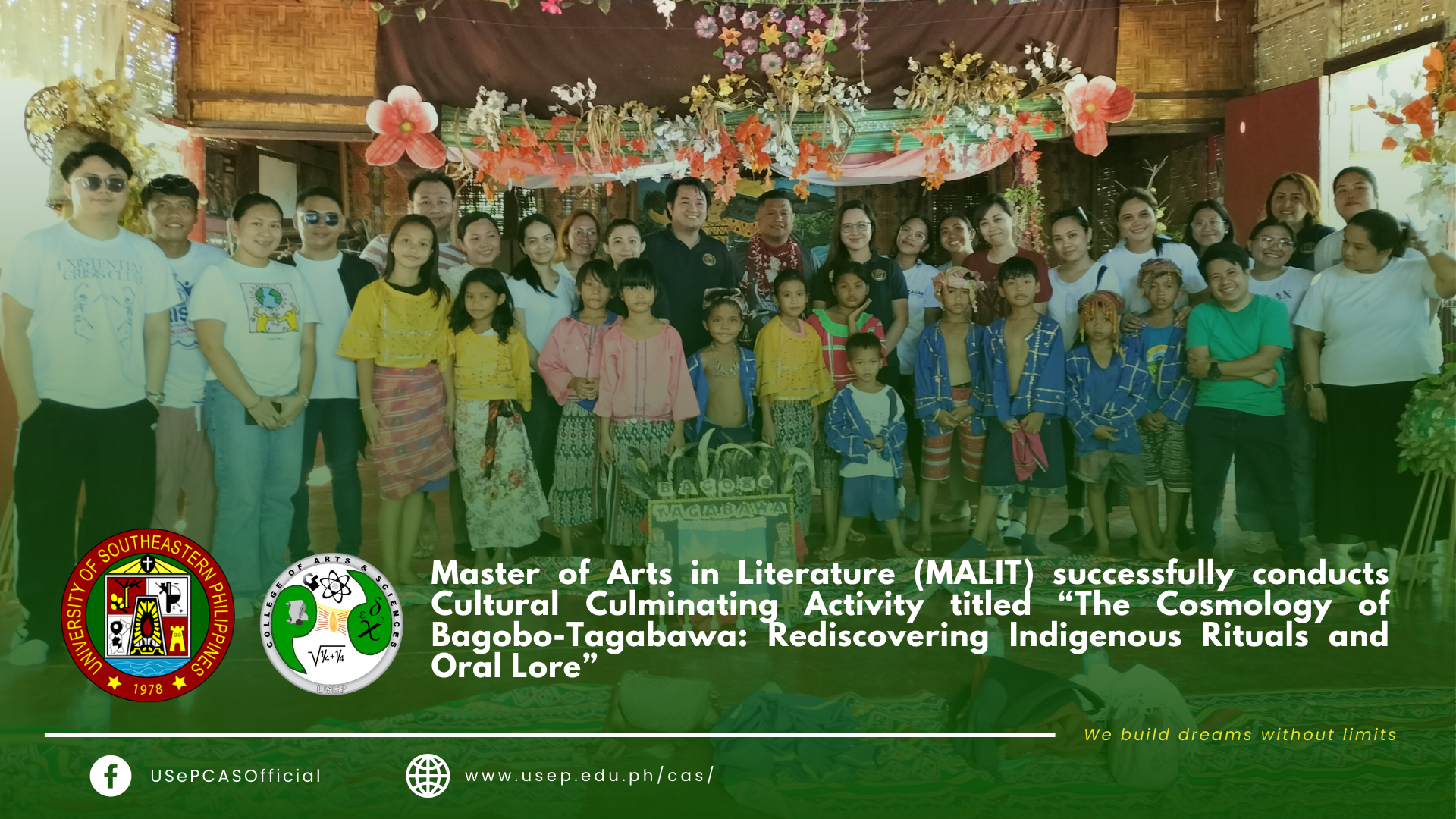
To advance the plethora of knowledge in Indigenous research, the Master of Arts in Literature (MALit) program of the University of Southeastern Philippines (USeP) conducted its culminating activity, “The Cosmology of Bagobo Tagabawa: Rediscovering Rituals and Oral Lore,” on April 27, 2024, at Tagabawa Christian School, Astorga, Sta. Cruz, Davao del Sur.
In Nick Joaquin’s Culture and History, it is said that culture refers to its 𝑙𝑜𝑓𝑡𝑖𝑒𝑟 𝑑𝑖𝑐𝑡𝑎 (like literature and arts) — our way of living has come to mean our metamorphosis. In connection with this, through the event’s speaker, the IP leader and founder of Tagabawa Christian School in Astorga, Matanem Renante D. Talabon, the students were able to understand the 𝐵𝑎𝑔𝑎𝑜𝑏𝑜 𝑇𝑎𝑔𝑎𝑏𝑎𝑤𝑎’𝑠 Indigenous methodologies and Indigenous knowledge systems and practices that have shaped the ICC’s becoming.
The said undertaking deals with the courses LIT 7214 Advanced Literature and Cultural Anthropology, LIT 7121 Advanced Literatures of the Indigenous Peoples in Mindanao, and LIT 7122 Seminar in Afro-Asian Literature, which require Master of Arts in Literature (MALit) students to create fieldwork journals and research proposals as their learning evidence and avenue to taking part in transforming communities. The activities primarily focused on Indigenous knowledge of forest, land, and water, wherein Datu Talabon introduced the students and faculty to 𝐵𝑎𝑦𝑜𝑛𝑔𝑜𝑛, their ancestral domain. The 𝐵𝑎𝑦𝑜𝑛𝑔𝑜𝑛 is where his 𝑘𝑎𝑡𝑎𝑙𝑎𝑑𝑖 and tribe members recognize their cultural ties to the traditional land, relying upon their amenities of everyday life and spiritual beliefs throughout the epochs, thus serving as their self-determination and self-autonomy.
The students were also given an opportunity to experience Indigenous cooking through Datu Talabon, introducing their delicacies and linotlot, the 𝐵𝑎𝑔𝑜𝑏𝑜 𝑇𝑎𝑔𝑎𝑏𝑎𝑤𝑎’𝑠 traditional culinary method. This is also a testament to their resistance to intervenors and transfiguration. Concerning culture preservations, Datu Talabon, Dr. Angelo Lenard Yu, and MALit students had put the Bagobo Tagabawa’s folktales into written text. Three short stories titled “𝐷𝑎𝑦𝑜𝑛𝑔”, “𝑇𝑜 𝑇𝑎𝑛𝑎 𝐾𝑜𝑘 𝐵𝑎𝑦𝑜𝑛𝑔𝑜𝑛” (The Legend of Bayongon), and “𝑆𝑖 𝐴𝑦𝑎𝑡 𝑎𝑠𝑡𝑎 𝑠𝑖 𝐴𝑛𝑑𝑢𝑟 𝑚𝑔𝑎 𝐺𝑎𝑏𝑎𝑡𝑎 𝑁𝑒𝑛𝑔 𝑎𝑠𝑡𝑎 𝐵𝑖𝑎” (Si Ayat ug Andur) were translated into both English and Bisaya language and were shared with 𝐵𝑎𝑔𝑜𝑏𝑜 𝑇𝑎𝑔𝑎𝑏𝑎𝑤𝑎 children through creative big books.
By way of collaborative efforts of the 𝐵𝑎𝑔𝑜𝑏𝑜 𝑇𝑎𝑔𝑎𝑏𝑎𝑤𝑎 elders and the academic institution, the activity aims to foster education among young IPs by sharing their lores, customs, and traditions. The participants in the activity, the MALit students with the faculty, Dr. Angelo Lenard E. Yu, Jenifer R. Tuban, Rhea Izza T. Paglinawan, and Assistant Professor Josephine May Grace A. Famoso, in a nutshell, were able to decipher 𝐵𝑎𝑔𝑜𝑏𝑜 𝑇𝑎𝑔𝑎𝑏𝑎𝑤𝑎’𝑠 indigeneity to their homeland by understanding the tribe’s ontological pursuits. The produced knowledge in this activity could be a significant resource for contemplating culture and society.
###
